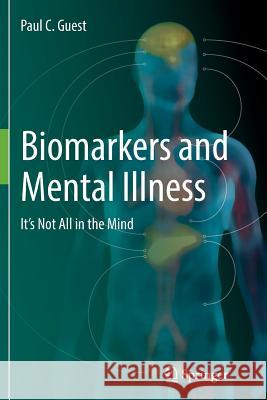Biomarkers and Mental Illness: It's Not All in the Mind » książka
topmenu
Biomarkers and Mental Illness: It's Not All in the Mind
ISBN-13: 9783319834375 / Angielski / Miękka / 2018 / 203 str.
Kategorie:
Kategorie BISAC:
Wydawca:
Copernicus Books
Język:
Angielski
ISBN-13:
9783319834375
Rok wydania:
2018
Wydanie:
Softcover Repri
Ilość stron:
203
Waga:
0.31 kg
Wymiary:
23.39 x 15.6 x 1.17
Oprawa:
Miękka
Wolumenów:
01
Dodatkowe informacje:
Wydanie ilustrowane











